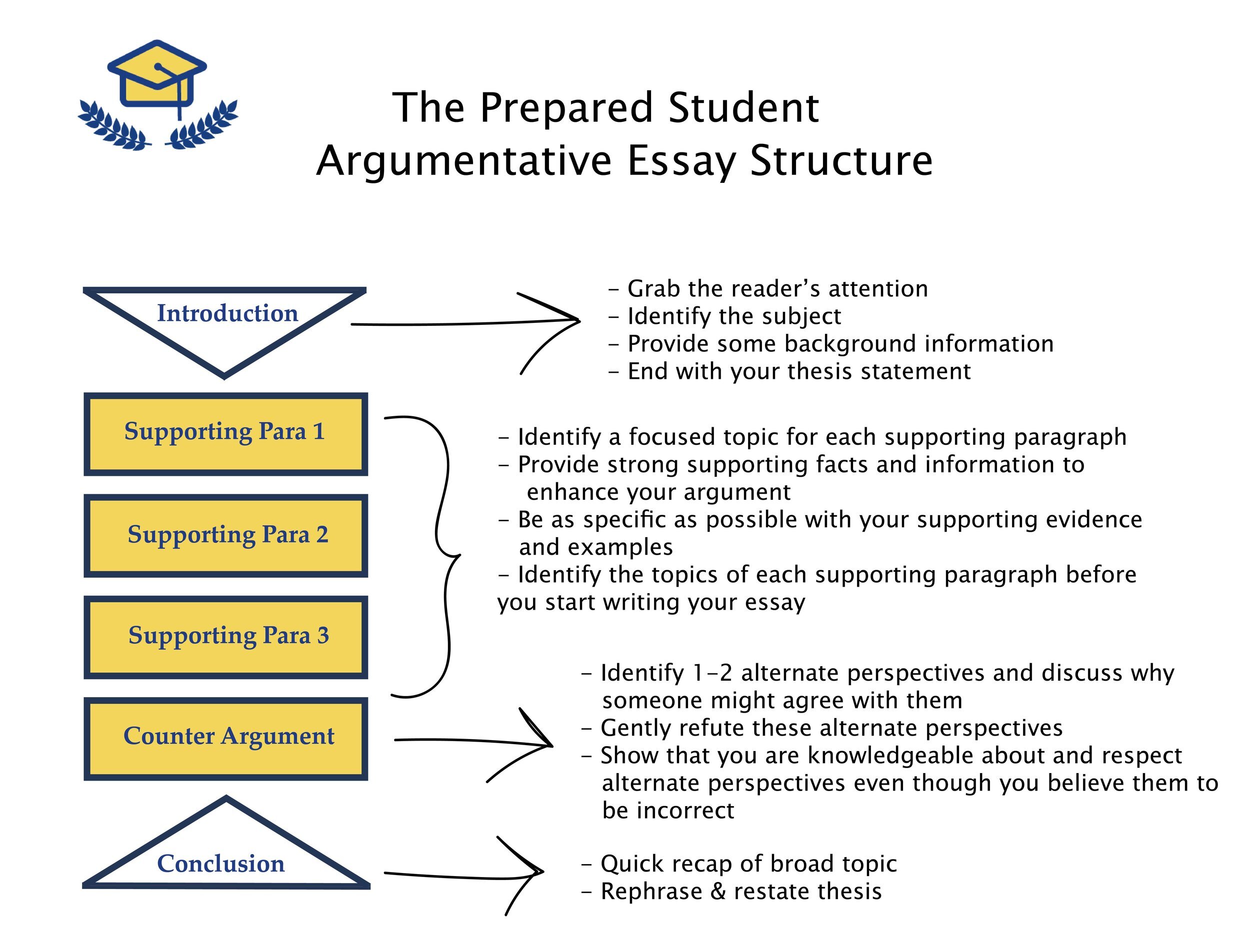ACT Test Prep: ACT Essay vs. SAT Essay
The ACT and SAT are both standardized exams that students often are required to include with their college applications. Both sections test students in areas of language arts, math, and writing, and the ACT also has an emphasis on science. Both tests also have an optional writing section where students write an essay on a specific topic. Here, we’ll walk you through how the ACT essay is very different from the SAT essay and what you can do to make sure you’re prepared to write an essay that is up to your full potential for either exam.
The ACT and SAT both examine students on areas and concepts that they are expected to be able to understand in order to perform well at the college level. Now, that doesn’t mean that a student needs to get a perfect score on every section of these exams in order to succeed at collegiate academics. It just means that students should have a good understanding of the overreaching ideas of each of these sections. For English, students should understand the standard conventions of English so that they can write sentences that aren’t full of grammatical errors. For math, students should be able to use basic algebra and geometry and understand probabilities and statistics. For reading, students should be able to analyze and make inferences from difficult texts. And for science, students should be able to interpret data that’s presented in charts and graphs.
When you think about it, this all makes a lot of sense. These are all skills that students will find very useful as they work their way through college, and even later in their everyday lives. So what about the writing section? The skills that the ACT and SAT writing sections test students on are just as essential when it comes to succeeding as college, if not more essential than some of the other concepts examined on these exams.
No matter what subject students go on to major and specialize in during college, it’s pretty much a given that they will end up writing multiple essays and written assignments during the course of obtaining their degree. That being said, the ability to write a well-crafted essay is a skill that will be very helpful for students during college.
For this reason, it can be very beneficial for students to opt to take the optional writing section of either the ACT or the SAT (or both!). Doing so will give students a good idea of how they will fare at college-level writing. Scores are broken down into different categories, which differ for each exam, but overall a student’s writing score will give them a good idea of the level of their writing skills. If they receive a higher score, they can go into college confident about their writing abilities. If they receive a lower score, students can then plan ahead and work on building their writing skills before being thrown into college-level writing.
But it’s important to recognize that there are several different types of essays that students may be tasked with writing during college (or even during high school). There will be courses that require students to write a research paper, which relies on the use and analysis of references to pose a theory. There could also be informative essays, which are meant simply to inform a reader. There are also argumentative essays, in which students argue a point and back it up. There could be other, more specific, writing assignments that students receive, as well as varying types within these bigger categories. Each writing assignment is unique, but all writing assignments require the same foundation.
All writing assignments rely on some similar skills and understandings. For example, all types of writing are bettered when students have a strong understanding of grammar and punctuation. Papers that are riddled with typos and grammatical errors deter readers from even getting to the meaning behind the words themselves. For this reason, students should go into college with a good foundational understanding of English grammar. This includes how to use commas, how to structure sentences when using independent and dependent clauses, and the correct use of things like apostrophes.
Additionally, all students should have an understanding of how to organize an essay.
In addition to knowing how to compose essays and use grammar correctly, students will need to have an understanding of citations and using references to support their claims. The use of citations and referencing reliable sources adds to the credibility of any point or argument. College professors will often be specific about what types of references students should use and what type of citation format they should use. Always make sure to read the directions to any writing assignment so that you make sure to meet all the expectations of the assignment.
Anyway, lets turn our attention back to the SAT and ACT standardized exams. What types of essays do students have to write for these tests? Well, this is a major difference between the ACT and SAT.
The ACT Essay
The ACT writing session always has students write an argumentative essay. Students are presented with some background information on a subject and three differing perspectives. Students are instructed to select one of the perspectives to write about and to argue their point. That’s right - students don’t even have to make up their own argument! They can simply select one of the perspectives they are given and use it as the base of their essay. They will then develop supporting information and examples to support the perspective chosen. Students then get 45 minutes to plan, create, and review their handwritten essay.
Students are scored based on their ability to effectively argue their perspective. The ACT does a pretty good job of selecting ACT writing topics that are more or less relevant to modern American life and culture, so generally the topic is something that most students should have some level of familiarity with. For example, recent ACT writing prompts have included subjects questioning the decrease of face-to-face communication, the effects of childhood stardom, the safety of genetically modified organisms, and the importance of arts in education. So, while students do not get a sneak peek at what the topic of the essay will be for the upcoming test, they should not worry so much about what the topic is as making sure they have a strong grasp of the writing fundamentals that the ACT is looking for.
The ACT writing section is scored on a scale of 1-12, based on the sum of the scores given by the two evaluators. That means that if each scorer gives the essay a score of 3 out of 6, the student’s score will be 6 (3+3), so the student has an essay that is doing about half of what a perfect essay does. Per act.org, a perfect 6 out of 6 on each of the four areas is considered as follows:
Ideas and Analysis—The writer generates an argument that critically engages with multiple perspectives on the given issue. The argument’s thesis reflects nuance and precision in thought and purpose. The argument establishes and employs an insightful context for analysis of the issue and its perspectives. The analysis examines implications, complexities and tensions, and/or underlying values and assumptions.
Development and Support—Development of ideas and support for claims deepen insight and broaden context. An integrated line of skillful reasoning and illustration effectively conveys the significance of the argument. Qualifications and complications enrich and bolster ideas and analysis.
Organization—The response exhibits a skillful organizational strategy. The response is unified by a controlling idea or purpose, and a logical progression of ideas increases the effectiveness of the writer’s argument. Transitions between and within paragraphs strengthen the relationships among ideas.
Language Use and Conventions—The use of language enhances the argument. Word choice is skillful and precise. Sentence structures are consistently varied and clear. Stylistic and register choices, including voice and tone, are strategic and effective. While a few minor errors in grammar, usage, and mechanics may be present, they do not impede understanding.
This perfect score is hard to come by, however, since both scorers would have to give the essay a score of 6 out of 6. But don’t fret — you don’t need a perfect score! (Remember that this section is optional and does not count toward your composite score!) So what actually is a GOOD essay score? Well, the average writing score is just shy of a 7 out of 12. For students looking to go to rather competitive colleges and universities, it is a good idea to aim for at least an 8 on the ACT writing section — this lands somewhere in the 80+ percentile. Students scoring over 8 on the writing section are in the 95+ percentile for this section of the exam, which makes anything above an 8 a really great score.
So, how do you write a strong ACT essay? Below, we’re walking you through the fundamental parts of a strong argumentative essay that accomplishes all the requirements of a perfect score essay on the ACT.
ACT Writing: Parts of an argumentative essay
Introduction
The introduction of any essay is very important for one reason: this is your first impression. You’ve probably had teachers tell you that you need to include a catchy hook in your introduction - this definitely isn’t a bad idea. You want to grab the reader’s attention and make them keep reading and paying attention. Your introduction should always close with your thesis statement.
Thesis Statement
A thesis statement is a concise, usually one-sentence, summary of the overarching point you’ll be making throughout the essay. If your essay is arguing that cats are better pets than dogs, then this is the type of broad information that you’ll want to include in your thesis statement. Make sure that the reader knows exactly what the broad topic of the paper will be.
Supporting Paragraphs
This is where you’ll attempt to persuade the reader to believe your perspective. A rule of thumb for essay writing is that you want to try to have 3 supporting paragraphs. In these paragraphs, you’ll want to use concise facts and supporting information — the more specific the better! If you’re arguing that cats are better pets than dogs, you might have one supporting paragraph that focuses on the level of independence of cats, one that discusses the high intelligence level of cats, and a third that examines a cat’s lifespan. (These are just examples off the top of my head - there could be so many more reasons that cats are better than dogs, or why dogs are better than cats! Alas, you sadly will not see an essay prompt that looks anything as casual as this one test day…)
Counter Argument/Opposing Viewpoints
A great argumentative essay will demonstrate an understanding of and respect for different viewpoints than one’s own. This is extremely important on the ACT — they want to see that you can argue a point, but they also want to see that you understand why someone may believe something different than you do. A good place to put this paragraph is right after your supporting paragraphs and before your conclusion. For my essay about cats and dogs, here is where I would write a brief paragraph discussing why some people prefer dogs over cats. I would then gently refute this perspective and lead into my conclusion.
Conclusion/Recap
In your conclusion you want to offer a broad recap of your point. Restate your thesis using different wording, and wrap up the essay nicely by summarizing your entire point.
The SAT Essay
The SAT essay consists of one text that is somewhere between 650 and 750 words. Students will read the text and then respond to it. Rather than creating and backing up their own argument, as in the ACT essay, the SAT essay tasks students with analyzing the argument of the author of the text. To receive a high score the SAT essay, students need to discuss the author’s use of evidence, reasoning, and rhetorical techniques to help build their argument and make it stronger.
The SAT selects specific texts for this essay section that reflect the difficulty expected of college-level texts and assignments. They claim that the passage will always be an interesting and engaging one that will give students an excellent opportunity to demonstrate their ability to understand and analyze a reading, as well as showcase their writing and composition skills.
The topics of the essay passage will vary, but the overall idea will be the same. An author will try to convince an audience of a claim. Though the topics will change, students do not need to have any background information on the topics. They only need to be familiar with what they are expected to do and how they will be scored. Students SHOULD NOT simply restate the author’s stance. Instead, students should focus on analyzing the way the essay is written, pinpointing what makes the essay stronger or weaker.
The SAT essay is evaluated by two scorers, similar to the ACT essay. However, for the SAT, each scorer assigns a student’s essay a score on a scale of 1-4 in three categories: Reading, Analysis, and Writing (RAW). When added together, these scores give students a final score on a scale of 2-8 in each separate category. Similar to the ACT, the writing section of the SAT will not be calculated into your other section scores on the SAT.
SAT Reading Score
Does the student understand the text? This is demonstrated through writing by including textual evidence, such as paraphrasing parts of the passage and including direct quotations. Use of both of these things will show that the student does, in fact, understand the passage.
SAT Analysis Score
Does the student effectively explain HOW the author builds their argument and persuades the reader? To effectively analyze a text, students should include specific evidence and examples from the text and reasoning and persuasive elements. The inclusion of important details and information from the text will support the overall claims.
SAT Writing Score
How effectively does the student use language? This includes areas of vocabulary and linking words and overall ability to express ideas.
While knowledge of both types of essays is going to be helpful for students, studying for the ACT essay really will not help students understand how to write a strong SAT essay. While both the ACT and the SAT essays are optional, students should consider taking this part of the exams to see how their writing skills match up to what will be expected of them during college.
The ACT scores students’ essays on areas of organization, development and support, language use, and ideas and analysis. In contrast, the SAT essay examines students’ understanding of a text, analysis of the text, and writing ability. If students receive low scores on the writing section of either exam, we highly recommend that they work on building up their writing skills leading up to starting college. Succeeding at college with poor writing skills will be a stressful, difficult feat. All students need to be able to craft strong pieces of writing to demonstrate their understanding across any subject at the college level.
If you take away one thing from this post, let it be this: though the ACT and SAT writing sections are optional, they provide a beneficial opportunity for high school students to see how their writing skills measure up to what will be expected of them at the college level. There is a lot of writing at the college level, be it multiple-page essays with several references and a large presentation, or short writing pieces as homework. Regardless of the area of study a student enters into, strong writing skills will be an asset throughout their college education and beyond.


